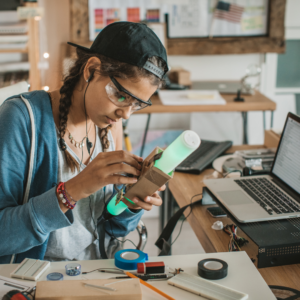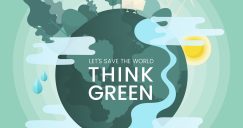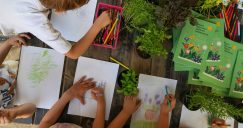
As the maker movement gained global traction in the early 2000s, it became clear that education played a significant role within it. Rooted in a culture that values hands-on learning and collaboration, researchers and practitioners began to formalize their approach, drawing inspiration from Piaget’s constructivism. They advocated for practical, collaborative learning experiences as a means to teach STEM concepts and address real-world problems. Some researchers stated that making and the positive social movement around it, could be an unprecedented opportunity for educators to advance a progressive educational agenda.
However, even the most enthusiastic supporters of maker education, including the authors of this article, are willing to critically examine this approach. They question whether maker education truly lives up to its claims of being democratic and sustainable. Critical making emerged from this need for reflection, aiming to show how making can encourage critical thinking about technology and society, viewing DIY objects as ‘things to think with.’ Critical making explores aspects of DIY culture that goes beyond just 3D printing decorative figurines, sparking a dialogue with those who perceive making as an expression of consumerism and even a contributor to social injustice.
Like all complex movements, there are multiple and sometimes even contradictory approaches, but we strongly believe that many aspects of maker education are relevant and helpful in the context of the LEVERS project. Maker education can promote open schooling for innovative science education, with a specific focus on lifelong learning for climate and environmental justice.
Firstly, in European climate plans for the next 10-30 years, reducing overconsumption and changing how we relate to objects, materials, and waste are key goals. Maker education and DIY naturally help reshape our connections with objects. By creating things ourselves, we understand the effort, cost, and materials involved, encouraging us to be more mindful. Additionally, by learning to repair and reuse, we become empowered consumers.
Secondly, transitioning to a more sustainable economy requires new skills for both vocational students and professionals. This may involve reclaiming lost manual skills or acquiring new technologies to tackle emerging challenges. Making needs to become a widespread attitude to facilitate this green transition.
Finally, engaging in making is a fulfilling activity. Working with young people to design and build small solutions to societal problems can lead to meaningful action and a shift in mindset.
In our first Onl’fait workshop in the framework of the LEVERS project, we’ll explore water consumption. We’ll discuss the hidden water footprint of everyday items like t-shirts and water usage in our daily life by applying some tools of transformation from the LEVERS Learning Framework. The first part of challenges we’ll be completed by an assembling a water flow meter to measure faucet usage. This is how we see maker education for sustainability!





